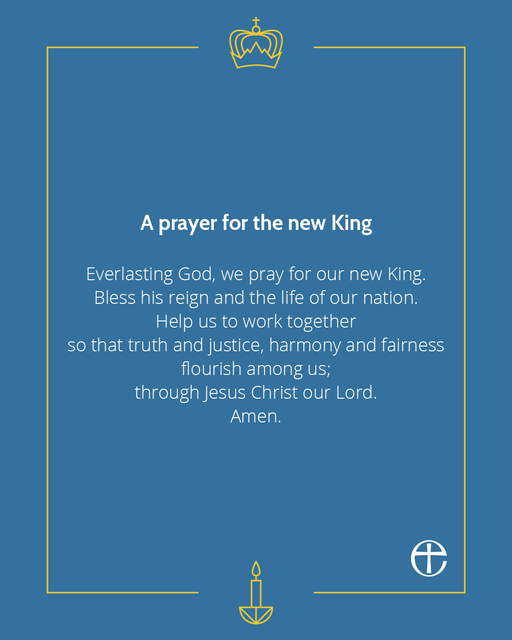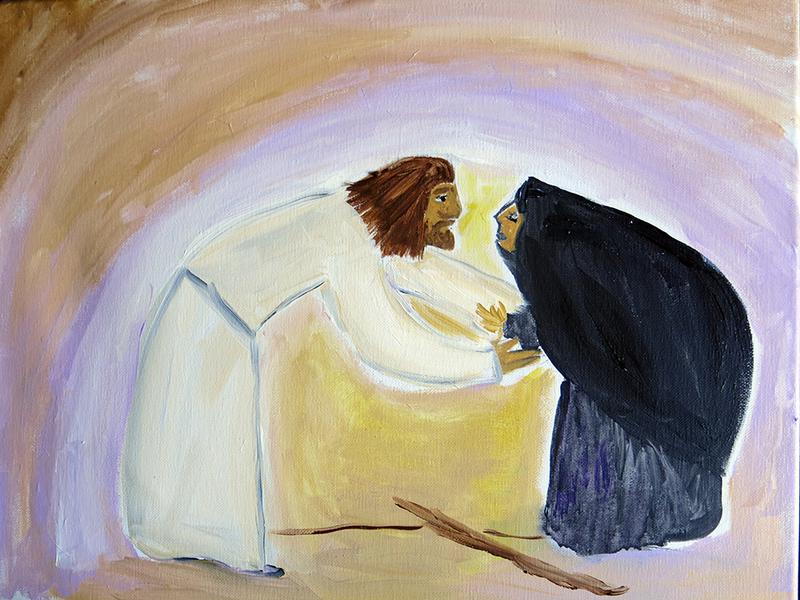
9/10/22
2 Kings 5:1-3, 7-15
2 Timothy 2:8-15
Luke 17:11-19
The weekend, the second in October, is one of my favourites of the year. It is Canadian Thanksgiving! Tomorrow is a national holiday in Canada; we don’t watch football or go shopping like our neighbours to the south. It tends to be more of a family time, the weather is generally nice so time can be spent outdoors before indulging in large turkey dinners and pumpkin-based desserts.
My family will all be gathering to do just this today and tomorrow. We have the tradition of going around the table (at the insistence of my Mother) so each person can say what they are thankful for. I think that there is something around this time of year, around harvest, that reminds us again of the need to be thankful. To reflect on the words ‘thank you’ whether that is to God or to those around us who may need to know of our thankfulness to them. There is certainly no shortage!
We have two responses to giving and receiving thanks this morning in the OT and the Gospel readings.
The story of Naaman in 2nd Kings is fascinating. There is a lot going on in it. Naaman is a commander of the Aramean army, he was a great man and in high favour with the king. He also suffered from leprosy. Leprosy would have been seen as a sign of God’s judgement in the days before medical microbiology and understanding of bacterial infections. It was a source of great shame and uncleanness. However Namaan was not shunned or made to live apart from society, let alone hold a high position. Maybe because he was deemed to be more important than other people?
He does, however, need help. The help that Naaman needs comes from an unlikely source; a young girl taken captive to serve his wife. Was she thanked for what she did? She likely took a big risk in speaking up in the first place; seeking to help the very person who had taken her into captivity. Maybe Naaman and his wife were a really lovely couple who showed kindness to this girl to the point that she felt comfortable speaking up. She was obviously convincing as her suggestion was taken seriously. Potentially out of desperation yet acted upon.
Sometimes help comes from the unlikeliest people. Are we aware of where our help comes from? Yes, it comes from God; thinking of Psalm 121.
However, God more often than not uses unlikely people to bring the help that we need. They, along with God, need to be thanked!
In the Gospel story of the 10 lepers, are we to be surprised by the one who returns to say thank you or the nine who don’t.
Which surprises you more?
The 10 lepers are clearly the outcasts of society. They kept their distance when Jesus came near to them as they had to call out to get the attention of Jesus. These ten had to live within the rules that had been imposed on them. On the surface they don’t have much to be thankful for. As a group they would have been instantly recognisable. Independently they would have been even more isolated and in greater danger. Maybe living the life they did had worn them down, made them suspicious, lacking trust and had given up on anyone caring about them.
Then they encounter Jesus and call out for mercy. There is no indication of how physically close Jesus came to them or if he even touched them. In fact, Jesus sent them away. They had to go and show themselves to the local priest to be declared clean. It was as they went away that they were made clean. I cannot begin to imagine the shock, the excitement, the overwhelming emotion that must have occurred when the ten realised they had been healed.
Maybe the nine didn’t go back because they were so eager to be declared clean and go home to their families that they simply did not think to go back and look for Jesus. But one did. Perhaps he had a greater need for gratitude. Luke doesn’t say that the other 9 were any less cured, but he is suggesting that they were less grateful. There is a message here for all of us who fail to thank God ‘always and for everything’ as Paul puts it. We can know with our heads, if we have any Christian faith at all, that it is God who gives us everything.
Every mouthful of food, every breath of air, glass of water or wine, every smile on every face and a billion other things. This runs counter in the world where too many people assume that they have an absolute right to health, happiness and every comfort imaginable. When we think like this, we easily lose any sense of thanks as it is replaced with entitlement. What is the antidote? Being thankful.
Naaman and the 10 lepers were given new life. The word for ‘get up’ used by Jesus at the end of the reading has to do with resurrection. The man who came back ‘was dead and is alive again’. New life had come through Jesus. Naaman recognised that he had been healed and he returned to Elisha to offer thanks and gratitude to God.
We also need to remember to thank the vehicles, the vessels, the flawed but beautiful people who He uses to help and assist us. Let’s also not forget that God uses us to help and heal the people around us. We need to accept thanks with grace and gladness and then return it to The One who gives us a new life.
The temptation can be to become very self-effacing; no need to thank me, etc. Actually accept it. God graciously receives our thanksgiving; we should be able to accept the thanksgiving of others. It is right to be mindful of our attitudes and motivations (doing something solely to be thanked isn’t great). If we have done something that another person feels is worthy of thanks and offers it; then we should accept it graciously.
The giving and receiving of thanksgiving all comes from God. We are kidding only ourselves if we think it does not. He is the one who we need to thank and keep on thanking for every good and perfect gift that comes from above.




